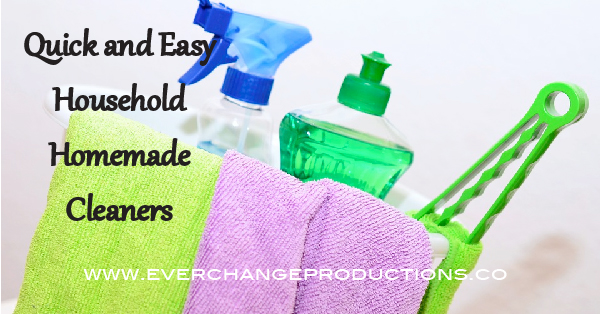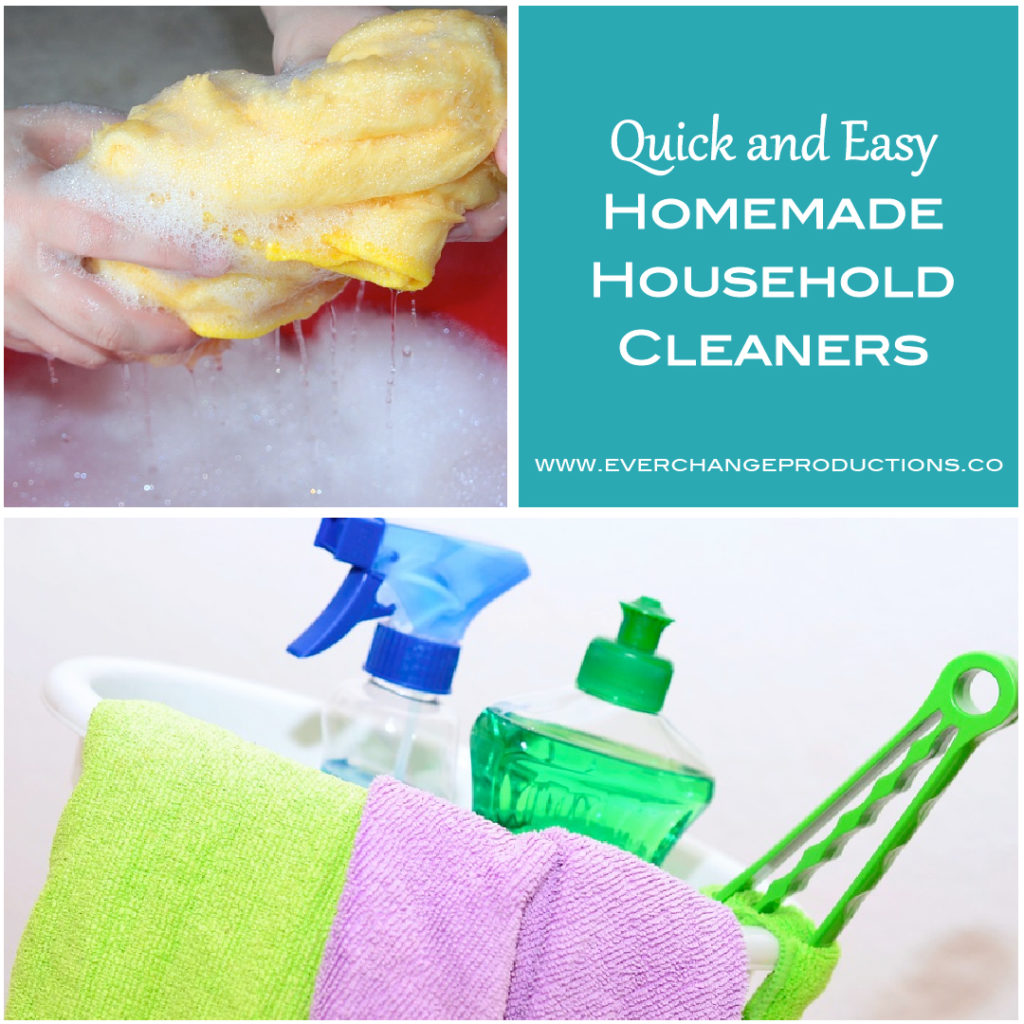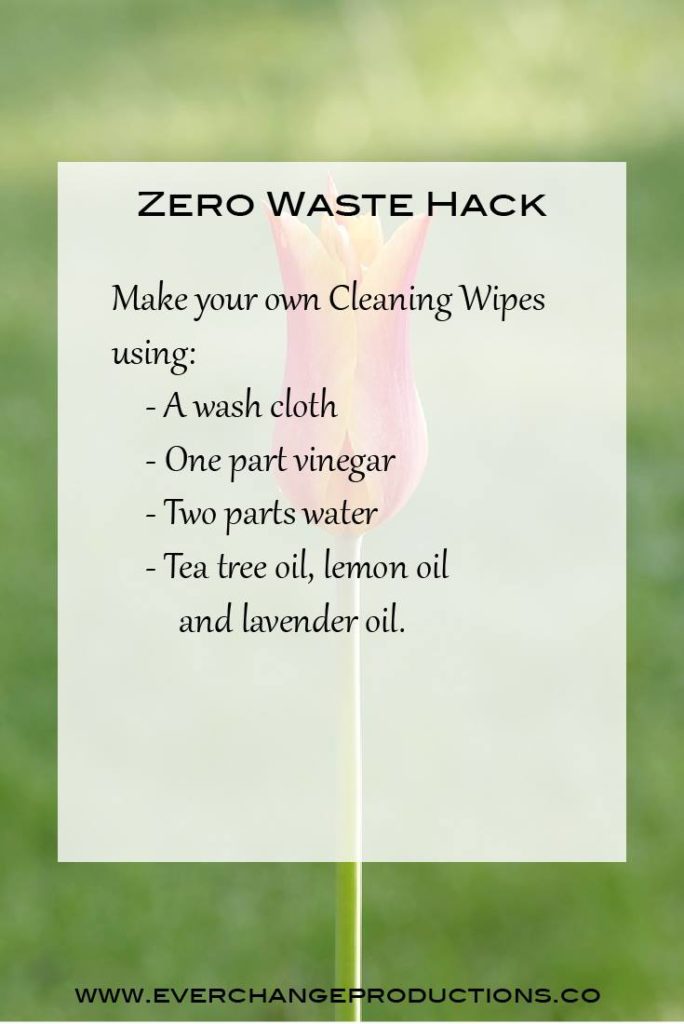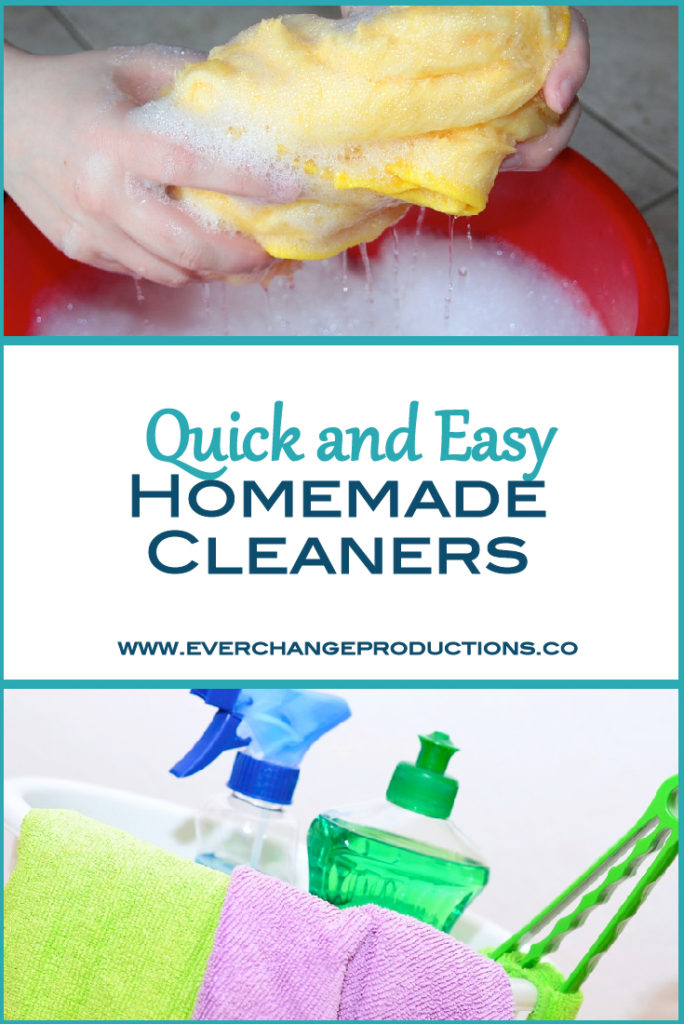Benefits of Homemade Household Cleaners
Homemade cleaners aren’t just a go-green sustainable living thing. They’re perfect for a variety of reasons. People who live a zero-waste or minimalist lifestyle prefer homemade cleaners because instead of buying several different cleaning solutions, they can buy products in bulk and make their own.
Other people enjoy using homemade cleaners because they’re less harsh. This makes them better for us and the environment. Experience customized solutions with tailored cleaning plans designed for your needs today.
This post contains affiliate links. Purchasing through these links supports this blog at no additional cost to you.
Homemade Cleaners and Health
For those who clean, the harsh chemicals are absorbed through their lungs when they breathe and through their skin. Even those in the environment, the risks of conventional cleaners carry over.
Although, most people buy cleaners for the anti-bacterial properties, studies show it’s not necessarily the best thing for us.
According to U.S. Food and Drug Administration (FDA), washing with antibacterial soaps isn’t any better than regular soaps. The American Medical Association (AMA) says frequent use of antibacterial ingredients can promote bacterial resistance to antibiotics.
Most concerning of all, Triclosan,(which was banned last year) was a common antibacterial agent found in many soaps. The FDA found evidence this agent promoted bacterial resistance and caused problems with your hormonal system and thyroid.
In addition, studies have shown that using a household cleaning spray, even as little as once a week, raises the risk of developing asthma.
Homemade Cleaners and Environment
These chemicals are washed off into the sink, in the laundry, or spread in the air, which is harmful for our waterways, wildlife and overall Earth.
I use homemade cleaner to save money, it’s better for my allergies and because I enjoy making things myself.
Homemade Cleaners that Work
Check the homemade cleaner recipes below or comment with your favorite recipe so I can add it to the list!
Homemade Cleaners with Vinegar
I used to HATE the smell of vinegar, but over time I’ve gotten used to it. It’s a great all-purpose cleaner or with small tweaks can clean some of the more problematic areas.
Homemade Kitchen Cleaners
Harsh chemicals in the kitchen are never a good idea. With these homemade kitchen cleaners you can be sure to keep the kitchen a safe place for your food and family.
Homemade Drain Cleaner
All you need is baking soda and white vinegar.
First, pour half a box of baking soda down the drain. Next, pour vinegar to create a foaming action. Finally, allow the foam to settle, then repeat once more.
If you need to get rid of odors in your drain, grind up a citrus peel with the garbage disposal.
Learn how to use homemade cleaners to clean and maintain your dishwasher.
Homemade Liquid Dish Soap
- ½ cup warm distilled water
- 2 tsp kosher salt
- ½ cup white vinegar
- ½ cup Dr. Bronner’s Sal Suds
- 1 tsp lemon juice
- Lemon essential oil (optional)
Combine distilled water with salt, stirring until the salt is dissolved.
In a separate bowl, combine the vinegar, Sal Suds, and lemon juice. Stir this mixture into the salt water mixture, and stir until thickened.
You may wish to add 10 – 15 drops of lemon essential oil both for scent and for disinfectant properties.
Pour mixture into a recycled dish soap container for storage.
Homemade Bathroom Cleaners
Mineral Deposit Remover
For an easy and frugal fix for hard water deposits, fill a small plastic bag half full with white vinegar and attach the bag over your shower head with a rubber band. After an hour or two, remove the bag and scrub the shower head with an old toothbrush or rag. You can also use this method on faucets in both bathrooms and kitchens.
It can be used to clean many surfaces in your home but can damage some materials like marble.
Mold and Mildew Remover
- 1 part vinegar
- 1 part water
Combine the vinegar and water in a spray bottle and shake it to mix.
This solution will kill the mold, but it won’t remove the mold stains. Just add a little elbow grease to get rid of the stains.
Vinegar Cleaning Tip: For stained surfaces such as shower walls, heat the vinegar solution in the microwave until warm. Spray shower walls generously with the warmed solution, allow to stand for 10–15 minutes, then scrub and rinse.
DIY Toilet Bowl Cleaner
First, drain the toilet to give you access to all sides of the bowl. Pour undiluted white vinegar around the bowl and scrub with a toilet brush to remove stains and odor. Use a pumice stone to remove any remaining hard water rings.
Other Cleaning Uses for Vinegar
Because it cuts detergent residue, white vinegar also makes a great fabric softener substitute for families with sensitive skin. Just add one cup of vinegar to your laundry in place of commercial fabric softener.
Homemade Carpet Cleaner Solution
All you need is vinegar, baking soda, hydrogen peroxide and water.
Mix white vinegar and baking soda together to make a paste. Use an old toothbrush or something similar to help work the solution into the carpet.
After the paste dries, vacuum up the baking soda, and the stain should be gone.
For extra tough stains use hydrogen peroxide and apply directly to the stain. Once it’s done fizzing, dab the stop clean with a rag.
Some stains may need to be treated more than once. Try to treat stains before they have time to set in, for the best results.
Homemade Disinfectant Wipes
- 1 cup water
- ¼ cup with vinegar
- 8 drops tea tree oil
- 8 drops lemon essential oil
- 8 drops lavender oil
- Empty “wipe” container (baby wipe, for example)
- 15 – 20 squares of cloth (old t-shirts work well, as do old dish towels or similar material)
Fold and place the cloth squares into the empty wipe container and set aside.
Combine in a mixing bowl the water, vinegar, and 3 essential oils, stirring until well mixed.
Pour this mixture over the cloths in the container where they will soak. Just pull the clothes out as you need them.
You can throw the used clothes in the laundry and use it again and again!
What You Should Know About Vinegar Cleaners
Make sure you clean out used spray bottles before putting these homemade cleaners together.
Avoid using vinegar on natural stone counter tops and floors, like those made of granite, marble and quartz. — it will etch the stone. You should also avoid using vinegar on unsealed grout, or grout that needs to be resealed again. Vinegar shouldn’t be used on waxed surfaces.
You should test on a small area before using on finished wood surfaces or tile. Also, try not to get vinegar in your eyes and avoid prolonged contact on your skin.
Label the spray bottle or container with what is inside and the date that you made it. You don’t want mystery bottles, jars or plastic containers in your pantry or under the sink.
Homemade All-Purpose Cleaners
Homemade Bleach Cleaner
If you like bleach as a cleaning solution (like the brand Clorox Cleanup) you can also make your own bleach cleaner with out the added price.
You need a spray bottle, (you can reuse store-bought cleaner bottles, but wash it thoroughly, so any cleaner residue doesn’t interact with the bleach) water and bleach.
Bleach is a powerful substance, so only use one part bleach to nine or 10 parts water. If your bottle holds 20 ounces, you should add about two ounces of bleach. Fill the remainder with water. Mix it well and start cleaning.
All-Purpose Vinegar Cleaner
For an all-purpose vinegar cleaner, you need equal parts white vinegar and water. You can use a new or used (well-cleaned) spray bottle. That’s all there is to it!
You can use this homemade cleaning solution on glass, use as an air freshener, or as your go-to all-purpose cleaner.
Other Homemade Cleaners and Supplies
Baking Soda
Using Essential Oils in Homemade Cleaners
Essential oils are often used in homemade cleaners to help them smell better and give the cleaning solution an extra punch. I’ve listed the most common essential oils and their common uses. Just add 10-20 drops of any of these for extra power in your cleaning products.
Cinnamon Leaf
Cinnamon is naturally antibacterial and antiseptic. Powerful against mold, it’s a great addition to homemade mold and mildew spray.
Eucalyptus
Eucalyptus is powerful dust mite buster. Use it with baking soda to deep clean your mattress and in a dry wash for stuffed animals or just put a few drop in your next wash cycle. And with its clean smell, eucalyptus is great for stinky jobs in the kitchen and bathroom.
Lavender
Not only is lavender a great antibacterial, it also is great for relieving stress. Lavender pairs well with another common natural cleaner, vinegar. Just add 4-5 drops of lavender to your vinegar cleaning mixture for its natural antibacterial properties – and for a more bearable scent.
Lemon
Lemon has a light, clean scent, but it’s also a powerhouse in homemade cleaning recipes. Naturally antibacterial and antiviral, lemon is commonly used to degrease stubborn stains as well as freshen the air. You can use lemon as a general freshener, deodorize your fridge, clean the floor or combine 10 drops with 1/2 cup olive oil for a natural wood or leather polish.
Peppermint
There are countless uses for peppermint oil around the home. Its cool, invigorating scent and antibacterial properties make it a great addition to spray cleaners and natural deodorant spray. It is also helpful for giving your focus and energy a boost.
Pine
Pine is a common ingredient in cleaners and for good reason. Pine oil is effective at killing yeast spores, E.coli and other household germs. Pine is perfect for ridding the bathroom of mold and mildew and cleaning hard floors while leaving a natural fresh scent.
Rosemary
Rosemary’s natural antibacterial and antiseptic properties make it a great addition to homemade dish soap and laundry detergent. Increase your focus and mix peppermint and rosemary in your cleaning solution.
Tea Tree (Melaleuca)
Tea Tree oil fights germs, bacteria and viruses in everything from homemade wipes to hand soap to daily shower spray. Tea tree oil is a handy weapon against bugs, too. Add tea tree to a spray bottle with water, shake well, and spray outside and inside the home to deter lice and other pests. If you discover signs of a bed bug infestation while cleaning, you may click here to schedule a service that will prepare your home for pest extermination.
Thyme
Thyme is one of the more powerful essential oil weapons against germs. Thyme is effective against salmonella so add it your cleaning solution for cutting boards after contact with raw meat.
Cleaning Cloths
In addition to homemade cleaners, you can also make your own dish scrubbers or purchase zero waste paper towel alternatives. You can also use luffas if you need a scratchier tool or use Swedish dishcloths for a eco-friendly, zero waste cleaning rag or sponge. Sweedish dish clothes dry fast so they help keep the bacteria at bay, while also being affordable alternatives to paper towels or sponges. They can clean almost any surface and are easy to throw in the washing machine, so you can use them again and again. When you’ve them all up, throw them in the compost pile or bury them for a zero waste life cycle.
Leave a comment below with your favorite homemade cleaner recipe and we’ll add it to the list!
Don’t forget to pin these recipes for later!




Nice post! So much helpful information!
Thank you!